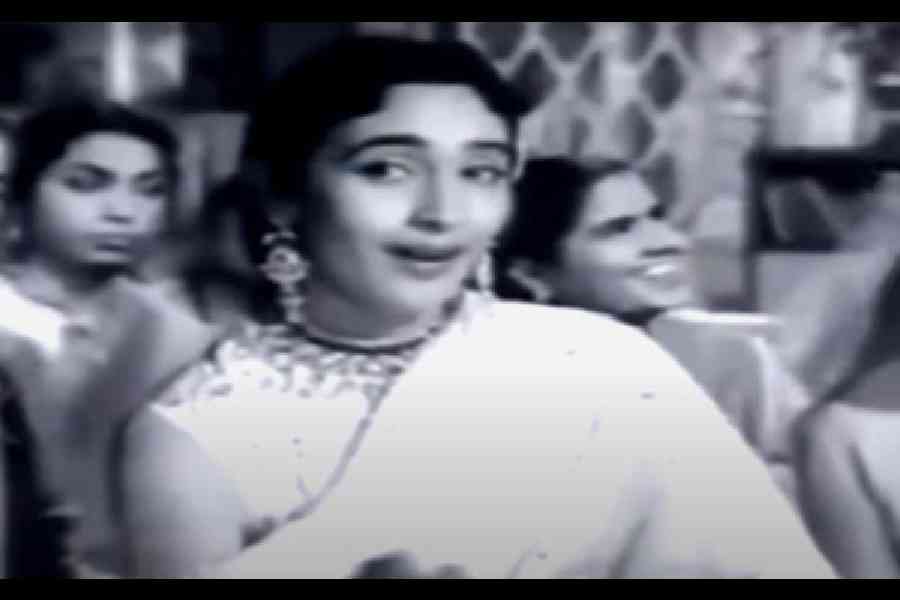What’s it like to live under the shadow of a musical giant and yet be a singing lighthouse, er, powerhouse? Ask Asha Bhosle, who turned 92 last week, has over 12,000 songs under her belt and can still carry a tune.
One of her personal favourites — she has said in many interviews — is the qawwali, Nigahein milane ko jee chahta hai, from the 1963 Raj Kapoor-Nutan starrer Dil Hi Toh Hai.
Directed by C.L. Rawal and P.L. Santoshi, the film was a frothy, lighthearted romcom in the now-extinct Muslim social genre.
The film remains memorable for its music. Composer Roshan and lyricist Sahir Ludhianwi put up a crackerjack array of songs, with at least two that define the cliche — timeless.
One is Manna Dey’s Laga chunari mein daag. The other is this qawwali.
As Bollywood songs have taught us, it takes three to tango — composer, lyricist and singer.
Roshan, born Roshan Lal Nagrath, is better known today as Hrithik Roshan’s grandfather, which does not do him justice.An accomplished sarod and esraj player, Roshan started out as an esraj artiste at All India Radio but had the gumption to chuck his job and seek his fortune in films. His classical grounding shows in his songs — Rahe na rahe hum, Jo waada kiya woh nibhana padega, Man re tu kahe na dheer dhare and many more.
Inspired by Raga Yaman, Nigahein milane ko... does justice to both the raga and the Sufi musical tradition. It’s also a more daring song than Roshan’s earlier famed outing in the same raga, Zindagi bhar nahin bhoolegi woh barsat ki raat (Barsat ki Raat, 1960).
It’s a joy to listen to Asha’s vocal gymnastics, as she switches between octaves like a pro, her voice honey and spice, her Urdu diction and expressions on point. Legend has it that big sister Lata Mangeshkar sat up and took note.
And what does one say about Sahir? A literary colossus who could effortlessly fit his poetry to the demands of the film song’s metre, his craft and versatility elevated the Hindi film song.
Nothing can better capture heartbreak than Sahir’s immortal line: Chalo ik bar phir se ajnabi ban jaye hum dono (Gumrah, 1963). Or love: Abhi na jao chhod kar, ke dil abhi bhara nahin (Hum Dono, 1961). Or satire: Aasman pe hai khuda aur zameen pe hum, aajkal woh iss taraf dekhta hai kum (Phir Subah Hogi, 1958).
Here, he writes:
Nigahein milane ko jee chahta hai
Dil-o-jaan lutane ko jee chahta hai
And then comes the poetic leap:
Woh tohmat jise ishq kehti hai duniya
Woh tohmat uthane ko jee chahta hai
If love is slander for the world, I’d like to bear the weight of this slander, sings a young girl merrily.
Sahir’s subversions always hit home.











